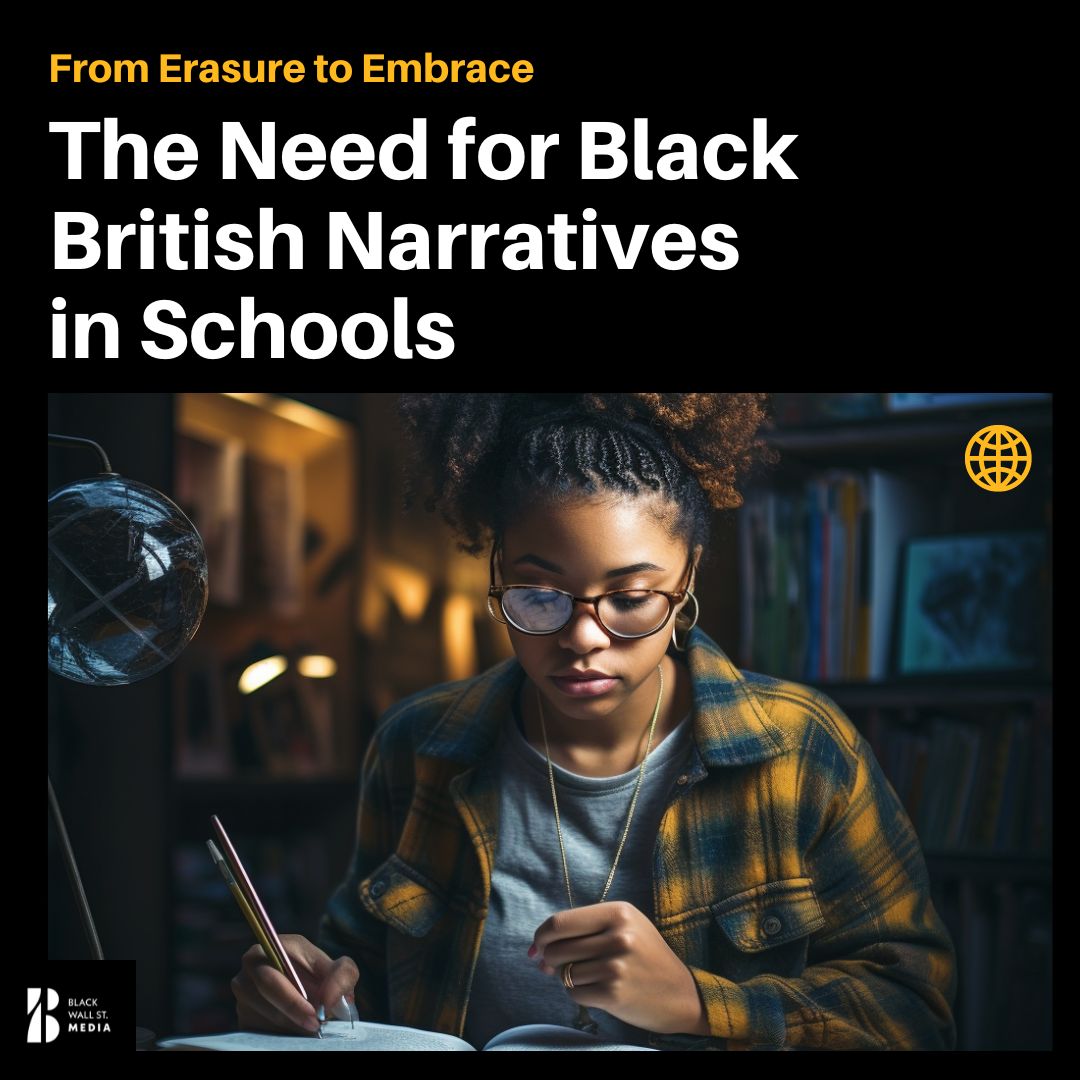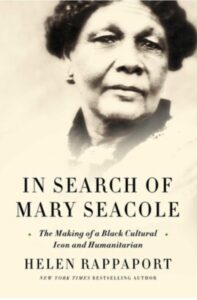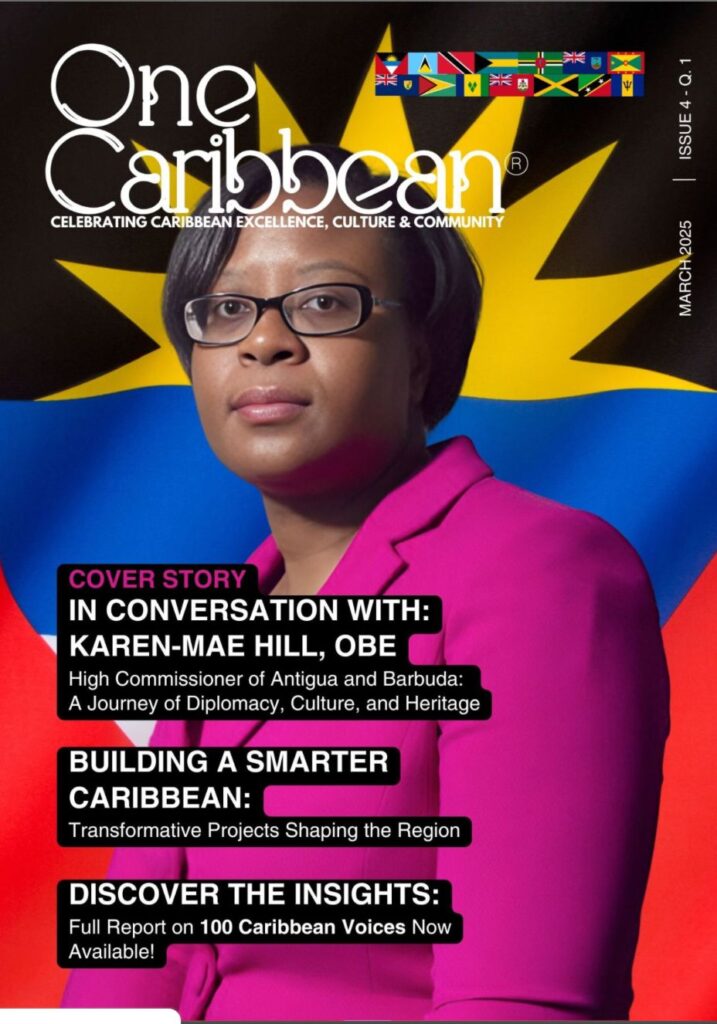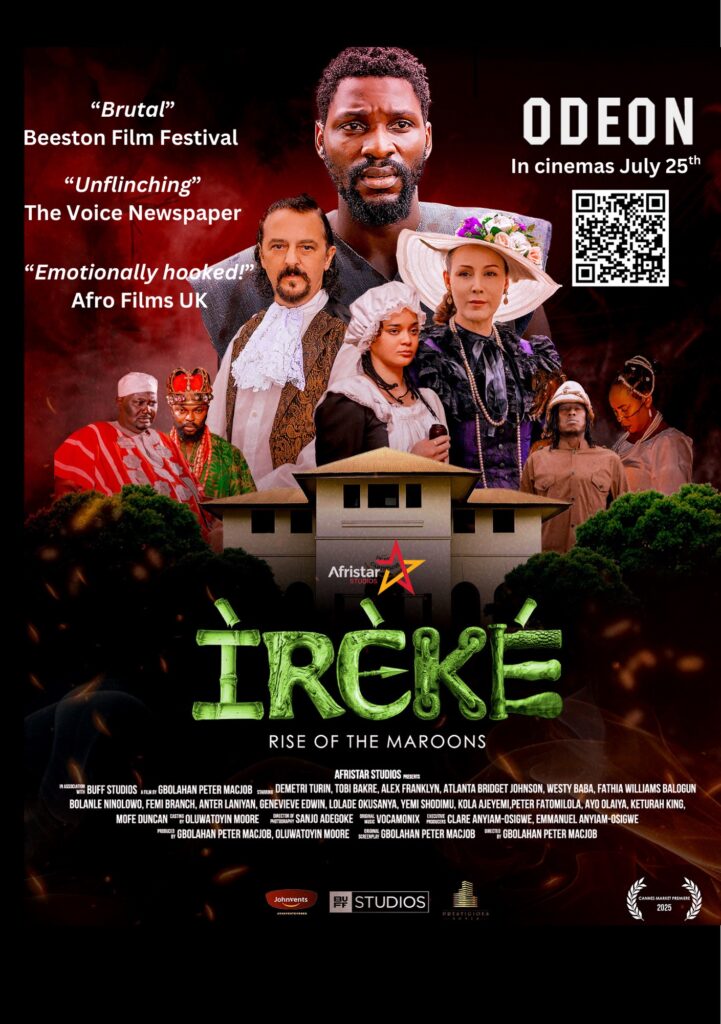EDUCATION
From Erasure to Embrace: The Need for Black British Narratives in Schools
“Black people are a part of the fabric of Britain, yet pupils are not taught the full story of Black history in schools.”
Black Wall St. MediaContributor

The Unspoken Void: Black British History in the UK Education System
For black Britons, the UK’s educational landscape often feels like a vast canvas where their contributions and struggles are but a minuscule speck, often overlooked.
While the National Curriculum meticulously teaches about Nazi Germany, the Vietnam War, and the American civil rights movement, it largely sidesteps the significant imprint of black Britons on the nation’s history.
One cannot help but notice the curriculum’s uncanny ability to critique other governments, to expose their historical wrongdoings, while seldom introspecting Britain’s own tainted past.
The curriculum’s tales of the establishment of the English parliament and political factions undoubtedly have merit, but the absence of Britain’s imperialistic conquests, such as its battles against the Zulu Kingdom, underscores an unsettling selective narrative.
For young black Britons, African American resistance stories often become the only source of racial representation in history classes. Figures like Rosa Parks, Martin Luther King Jr., and Malcolm X emerge as beacons of hope and resilience. While these tales of defiance hold global importance, they remain a part of a distant land’s narrative.
This raises an inevitable question: Where are the tales of black British heroes?
Icons who defied societal norms and etched their legacy in Britain’s story?

Mary Seacole
Pioneers like Mary Seacole, a British-Jamaican nurse, and Olaudah Equiano, a formidable abolitionist, are but glimpses of Britain’s rich black history that our education system often omits.
This exclusion from the historical narrative isn’t merely an academic oversight. It has profound implications on the identity and self-worth of young black Britons.
When you’re consistently taught that your ancestors were mere bystanders in history, it shapes your sense of belonging and self-worth.
Furthermore, this historical void has played into the hands of divisive political narratives.
The 2016 Brexit referendum was rife with xenophobic undertones, suggesting that black and brown people are a recent ‘addition’ to British society.
Such beliefs, however misplaced, are emboldened when a significant chunk of the population believes that black Britons only arrived post-WWII, unaware of the black presence in Britain since Roman times.
Britain’s selective historical amnesia isn’t just an academic issue—it’s a societal one. It feeds into harmful stereotypes, making it easier for prejudiced ideologies to spread. The rise in hate crimes post-Brexit referendum, especially in pro-Leave areas, stands testament to this ignorance.
To truly embrace its multicultural identity, Britain needs a curriculum overhaul. Recognising and teaching about its long-standing black heritage is not an option but a necessity.
As society progresses, education must evolve to reflect a complete, unbiased view of history, ensuring that the next generation grows up well-informed and appreciative of every community’s contributions.
Moreover, it is not just about inserting names and dates into textbooks; it’s about addressing the intertwining relationship of race with Britain’s socio-economic, cultural, and political fabric.
The rich tapestry of Britain’s music, arts, and culture has threads of black influence running through it. Jazz, reggae, and grime, although having origins outside of the UK, have been adapted, transformed, and popularized in unique ways within the nation’s borders.
Carnival in Notting Hill isn’t just an annual event; it’s a testament to the blending and celebration of diverse cultures and histories.
Furthermore, the culinary landscape of Britain has evolved due to its diaspora. The tastes of the Caribbean, Africa, and other parts of the world are no longer ‘foreign’ or ‘exotic’ but have found their home in British cities and in the hearts of its citizens.
The popularity of dishes like jerk chicken, jollof rice, or ackee and saltfish bear witness to this cultural meld.
However, the representation goes beyond cultural contributions. Black Britons have been influential in sectors from business to politics, science to sports. Take figures like Sir Trevor McDonald in journalism or Dame Kelly Holmes in athletics – their achievements aren’t just benchmarks for Black Britons, but for all Britons.
Their stories, struggles, and milestones should be integral in the national conversation, not just during Black History Month, but year-round.
The conversation also needs to shift from merely contributions to deeper structural issues. From the Windrush scandal to disparities in employment, housing, and healthcare, Black Britons often face systemic challenges.
Acknowledging this within educational frameworks will not only enlighten students about existing inequalities but will also inspire and empower them to be agents of change.
At its core, education is meant to be a mirror reflecting society’s truths, no matter how uncomfortable.
As the call for inclusivity and representation grows louder, Britain must rise to the occasion. Adapting the curriculum isn’t about rewriting history; it’s about ensuring it’s complete. A nation that acknowledges, learns from, and celebrates its diverse past is better equipped for a united future.
In the quest for a truly multicultural Britain, the journey starts in the classroom.
Only by embracing a holistic education, which acknowledges the roles and struggles of Black Britons, can the nation hope to pave a path of unity, understanding, and mutual respect for future generations.
The call for a broader educational spectrum also resonates with the global shift towards diversity, equity, and inclusion. In the digital age, where information is at our fingertips, it’s more evident than ever that education systems should evolve to become more comprehensive and inclusive.
The absence of Black British history also denies students of all backgrounds the chance to engage with varied perspectives.
These narratives provide richer understandings, not just of Black history, but of British history as a whole. A diverse curriculum offers students the chance to develop empathy, challenge stereotypes, and foster mutual respect.
Moreover, learning about the contributions of Black Britons can serve as a source of inspiration.
Knowledge of Black scientists, writers, politicians, activists, and entrepreneurs who’ve made significant strides in their fields despite facing racial barriers can motivate young Black students.

AI GENERATED IMAGE OF WALTER NOEL
It instills in them the belief that they too can overcome obstacles and achieve greatness.
In addition, understanding the Black British experience provides context to contemporary issues. For instance, understanding the root causes of systemic racism, the underpinnings of socio-economic disparities, and the historical context of current racial tensions can lead to more informed public discourse.
This awareness could contribute to policy changes, initiatives, and community efforts aimed at creating a more equitable society.
Furthermore, acknowledging the wrongs of the past is a step towards reconciliation. The transatlantic slave trade, colonialism, and racial policies have left deep scars on generations.
Teaching about them can spark discussions on reparative justice, acknowledgment, and healing.
It’s essential to understand that including Black British history isn’t just about correcting omissions.
It’s a significant step towards creating a society that understands, respects, and values its diverse populace. It pushes towards a future where every individual, regardless of their race or background, feels seen, heard, and valued.
To conclude, Black British history is British history. By integrating these stories and experiences into the curriculum, Britain not only enriches its educational landscape but also takes a monumental step towards becoming a truly inclusive and united nation.
”It's a journey of acknowledgment, appreciation, and understanding – one that holds the promise of a brighter, more cohesive future.
Black Wall St. MediaContributor











